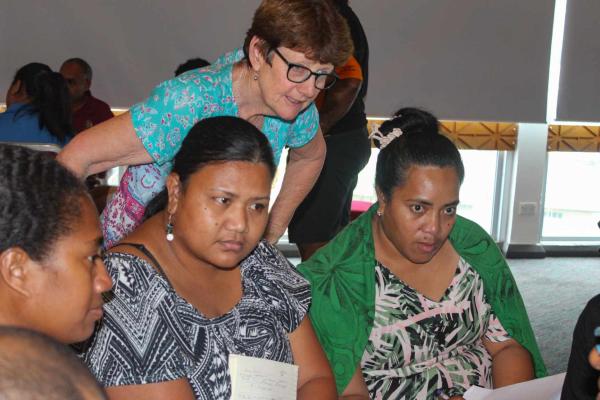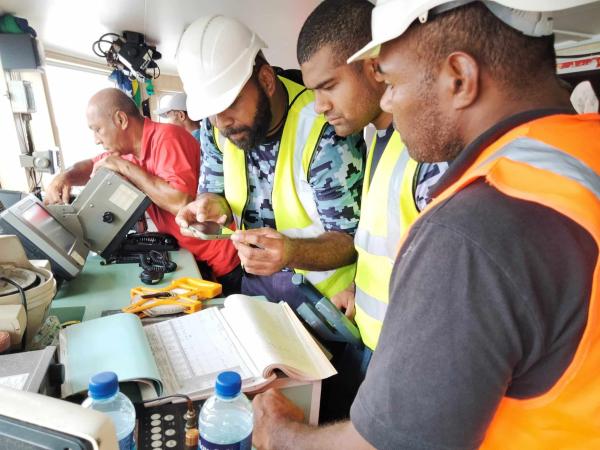The Pacific-European Union (EU) Marine Partnership (PEUMP) programme promotes sustainable management and sound ocean governance through a holistic and multi-sectoral approach contributing to social, economic and environmental development in the Pacific, as well as biodiversity protection and promoting the sustainable use of fisheries and other marine resources.
The PEUMP programme focuses on equitable benefits for all Pacific countries, whilst recognising the diversity of resources, needs and opportunities amongst its 15 Pacific countries of work - the Cook Islands, Fiji, Federated States of Micronesia (FSM), Kiribati, Nauru, Niue, Palau, Papua New Guinea, Republic of the Marshall Islands, Tuvalu, Tonga, Samoa, Solomon Islands, Timor Leste and Vanuatu.
Several key Pacific regional agencies are also part of the PEUMP programme, with targeted support being implemented by the Pacific Community (SPC), Forum Fisheries Agency (FFA), Secretariat of the Pacific Regional Environment Programme (SPREP) and the University of the South Pacific in close collaboration with national authorities and Non-Government Organisations such as the Locally Managed Marine Area (LMMA) Network, Worldwide Fund for Nature (WWF), International Union for the Conservation of Nature (IUCN) and the Pacific Islands Tuna Industry Association (PITIA).
These multi-stakeholder partnerships collaborate, lead and deliver targeted programme support through:
- Partnerships with Pacific Island countries to reduce illegal, unregulated and unreported (IUU) fishing activity and increase national capacities for sustainable management (SDG 14.4);
- Partnerships with the Private Sector to create new business opportunities, to improve legal practices and to foster decent employment creation (SDG 14.7);
- Partnerships with NGOs to increase awareness on IUU fishing activities and support advocacy campaigns for behaviour changes (SDG 14.4);
- Promotion of the sustainable utilisation of coastal and marine biodiversity through improving marine spatial planning, climate change resilience, and conservation (SDG 14.2);
- Capacity building – involving the regional university network and TVET institutions – as a key tool for better fisheries and marine resources management (SDG 4);
- An annual Policy Dialogue on integrated ocean governance and sustainable fisheries between the EU and Pacific Island Countries is a key initiative to promote accountability in the management of marine resources, enhance understanding on joint priorities, and strengthen the voice of stakeholders (SDG 17);
- Gender mainstreaming and human rights-based approaches as key pillars to promote direct opportunities and positive changes for Pacific Island people., targeting women, men, youth and vulnerable groups (SDGs 5 and 10).
- Facilitation of sector policy dialogues involving civil society organisations and non-state actors, including the private sector, further contributing to ownership and sustainability beyond the life of the programme (SDG 17).
The PEUMP programme is funded by the EU and the government of Sweden and is managed by a Programme Management Unit (PMU) based at the SPC in Suva, Fiji.


